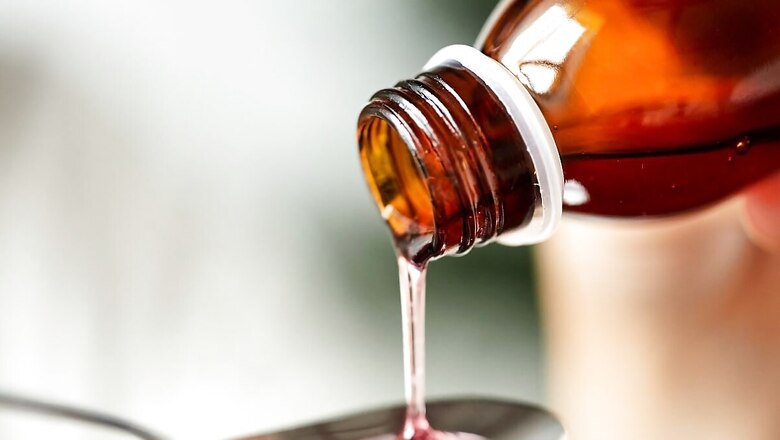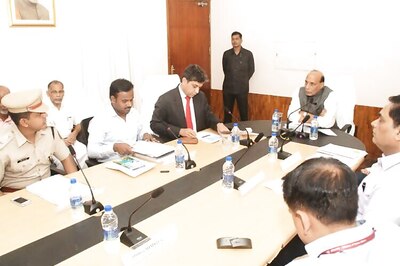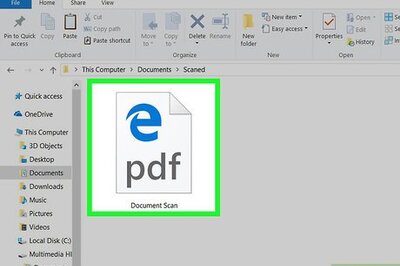
views
The makers of chemical Propylene Glycol — used in making cough syrups — are under the scanner across India, News18 has learnt.
In an attempt to prevent exports and domestic consumption of poor-quality cough syrups, the country’s apex health regulatory agency, Central Drugs Standard Control Organisation (CDSCO), has started verifying manufacturing of propylene glycol and its supply chain across the country as a matter of “top priority”.
Highlighting the “quality concerns”, the head of CDSCO, the drug controller general of India (DCGI) asked states and Union Territories on December 6 to verify the supply chains in their jurisdictions.
“It is proposed to verify the supply chain and quality of propylene glycol from cough syrup manufacturer to propylene glycol manufacturer or importer to rule out possible quality issues related to diethylene glycol (DEG) and ethylene glycol (EG) and diversion of industrial grade propylene glycol in pharmaceutical industry,” DCGI wrote in the letter accessed by News18.
The letter is sent to drug inspectors in zonal and sub-zonal offices, states and Union Territories.
The syrup-based formulations such as cough syrups require use of solvents like propylene glycol because of the insolubility of the drugs used. However, it also requires use of adulterants with these solvents where mainly diethylene glycol (DEG) and ethylene glycol (EG) are used.
When these products are of cheap quality or used in higher quantities, the adulterants prove toxic for kidneys and may cause death. Starting October 2022, there have been several incidences of these adulterants being found in syrup-based formulations exported from India causing the deaths reported in Gambia, Uzbekistan, Marshall Islands, Micronesia and other countries.
While India has taken several initiatives to put a system of checks, in the latest move the DCGI has directed states and Union Territories to deploy inspectorate staff to carry “joint verification for supply chain of propylene glycol and sampling at manufacturing sites of cough syrups”.
The verification report, as per the letter, will focus on collecting detailed information, including the number of cough syrup batches manufactured in the year 2023.
It will also focus on details of propylene glycol used for manufacturing of cough syrups like grade of PG, source of PG (imported or domestic) and testing parameters deployed by the firm including in house testing or outsourced testing along with the details on shelf life.
The letter also asks inspectors to submit the details of available stock of propylene glycol with all manufacturers in India as well as “details of samples drawn under the Act & Rules from propylene glycol stock and finished products of cough syrups”.
“Further, the drug inspectors may be directed to complete the supply chain disclosure under Section 18A for the PG up to the level of PG manufacturer or importer and submit the complete supply chain verification report,” said the letter signed by DCGI Rajeev Singh Raghuvanshi.
Deferring the already planned inspections for the given month, Raghuvanshi has asked inspectors to treat the matter of propylene glycol on “top priority”.
“It may be informed that considering the matter of priority the proposed risk based inspections of manufacturing units and private testing laboratories scheduled from 11.12.2023 to 22.12.2023 are deferred till further notice. This is for necessary action on top priority.”
It was on October 5 when the World Health Organization (WHO) announced that India-made cough syrups could be behind the death of more than 60 children in the West African nation, The Gambia. The news came not just as an allegation but as a damning claim, considering that India holds the reputation of “pharmacy to the world” for the last many decades.
According to WHO, laboratory analysis of the syrups confirmed “unacceptable” amounts of Diethylene Glycol and Ethylene Glycol — which can be toxic and lead to acute kidney injury — in four cough syrup brands.
Following the incident, many more such events were reported across the globe after which the central government, along with the drug regulatory agency, upped its ante and has been adopting several measures, including putting a system of checks at government laboratories before the export of cough syrups.



















Comments
0 comment